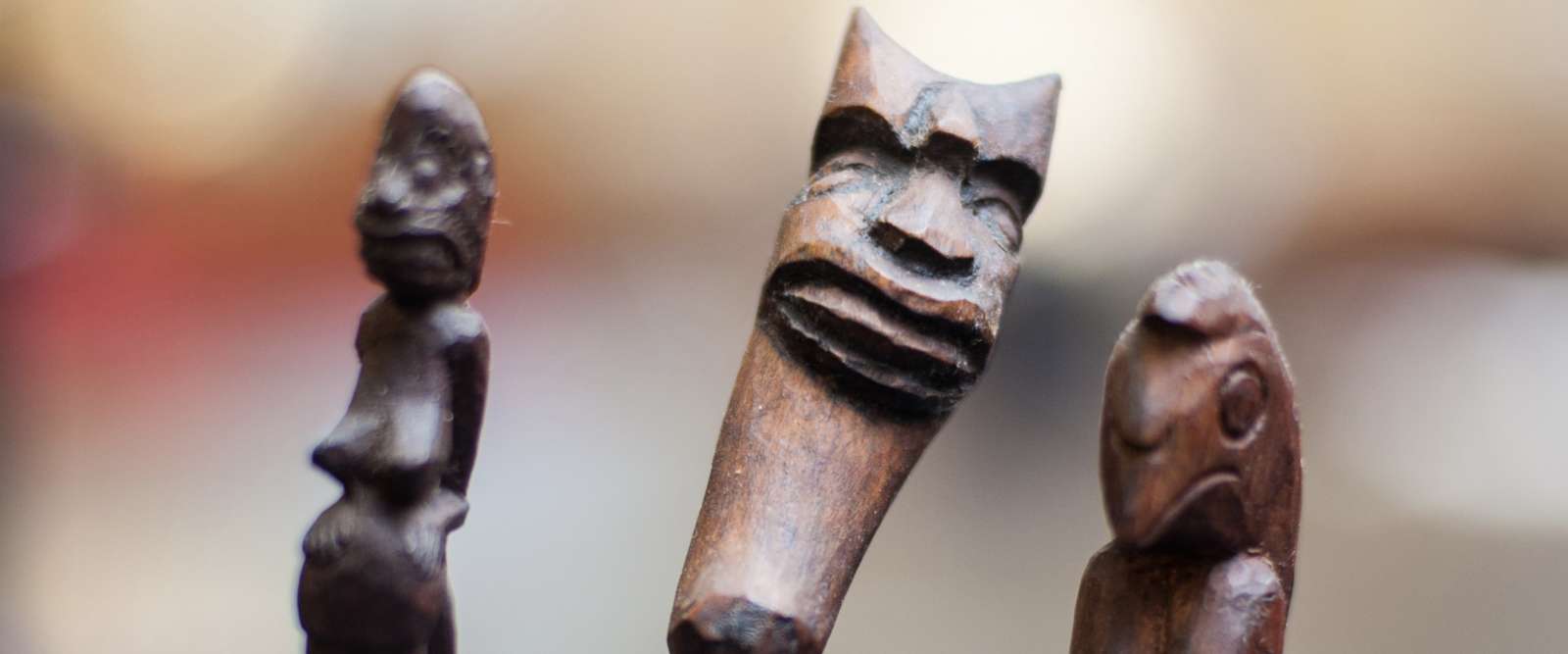Overview
Anthropology at Keene State attempts to integrate knowledge of human beings and their activities at the highest and most inclusive level. Anthropologists study the patterning of human behaviors, as well as the conditions under which they arise, persist, or disappear, in the belief that the knowledge gained from this perspective may be applied to the solution of problems of everyday life in different cultures.
Program Options
Students who are interested in anthropology at Keene State can major in anthropology/sociology or minor in anthropology.
Anthropology Major
The anthropology/sociology major prepares students for the social and professional demands of living in an increasingly multicultural world. You’ll examine what it means to be human, how we evolved physically and developed culturally over time, how society and culture influence behavior, and how culture provides a lens through which people understand and interpret their world. Students usually pursue a cultural anthropology or physical anthropology/archaeology track. A primary focus of the major is helping students develop a set of practical skills and conceptual tools necessary for continuing to learn about other cultures, sub-cultures, and societies after they leave college. Cultural anthropology students are encouraged to study a second language to better immerse themselves in the culture they are studying.
Anthropology Minor
The anthropology minor introduces the student to the comparative and holistic study of people. It explores the biological, social, and cultural aspects of our species in the past, present, and future. The minor provides global information and thinking skills critical to succeeding in the 21st century in business, research, teaching, advocacy, and public service.
Anthropology/Sociology, B.A., Total Credits: 120
Core Courses
Cultural Anthropology
Introduction to anthropological knowledge and understanding of human cultures and societies. Cross-cultural comparison and review of tribal and industrialized societies. Application of anthropological concepts to provide understanding of other cultures and one's own culture. Fall, Spring.
Introduction to Sociology
Introduces basic concepts, theories, and methods of sociology. Develops a sociological perspective on social issues, problems and events. Provides an overview of major sub-fields in sociology. Also prepares students for the major and a career in sociology and related professions. Fall, Spring.
Sociological Research Methods
Methodologies and types of research commonly used in sociology. Focus on the research process, including the research problem and techniques of data gathering. Design and use of the interview, questionnaire, and case study approaches to sociological analysis. Three-hour lecture, one-hour lab. Prerequisite: ISSOC 125 or CJS 240 (Min Grade of B), or permission of instructor. Fall, Spring.
Request Information
Career and Other Opportunities
Students focusing on cultural anthropology generally go on to serve in the Peace Corps, CityCorps, or AmeriCorps, or in other professions that allow them travel across the country or explore the world, immerse themselves in other cultures, learn about different customs and traditions, and develop a truly global perspective. Students interested in physical anthropology/archaeology are encouraged to also take a second major or minor in History if they are interested in Museum Studies or other Cultural Resource Management work. Combining physical anthropology/archaeology with courses in Holocaust and Genocide Studies and Criminal Justice Studies prepares students for possible careers related to mass graves recovery, the identification of victims of war crimes, and repatriation of human remains and cultural treasures. Some law enforcement jobs, such as those in the customs and immigration services, benefit from training in Anthropology/Sociology.
Outcomes
Students who major or minor in anthropology/sociology or anthropology at Keene State graduate with the ability to:
- Observe and analyze social and cultural phenomena within an informed global and culturally relativistic perspective.
- Understand how race, class, and gender are culturally constructed in different societies and how these constructions are related to patterns of power and privilege manifested in those particular societies as well as cross-culturally.
- Develop a basic understanding of human evolution and cultural development.
- Acquire proficiency with anthropological and sociological theory, ethographic research methods, quantitative analysis, and scholarship.
- Become aware of the politics of knowledge production and to challenge scholastic conventions in a rapidly changing world.



